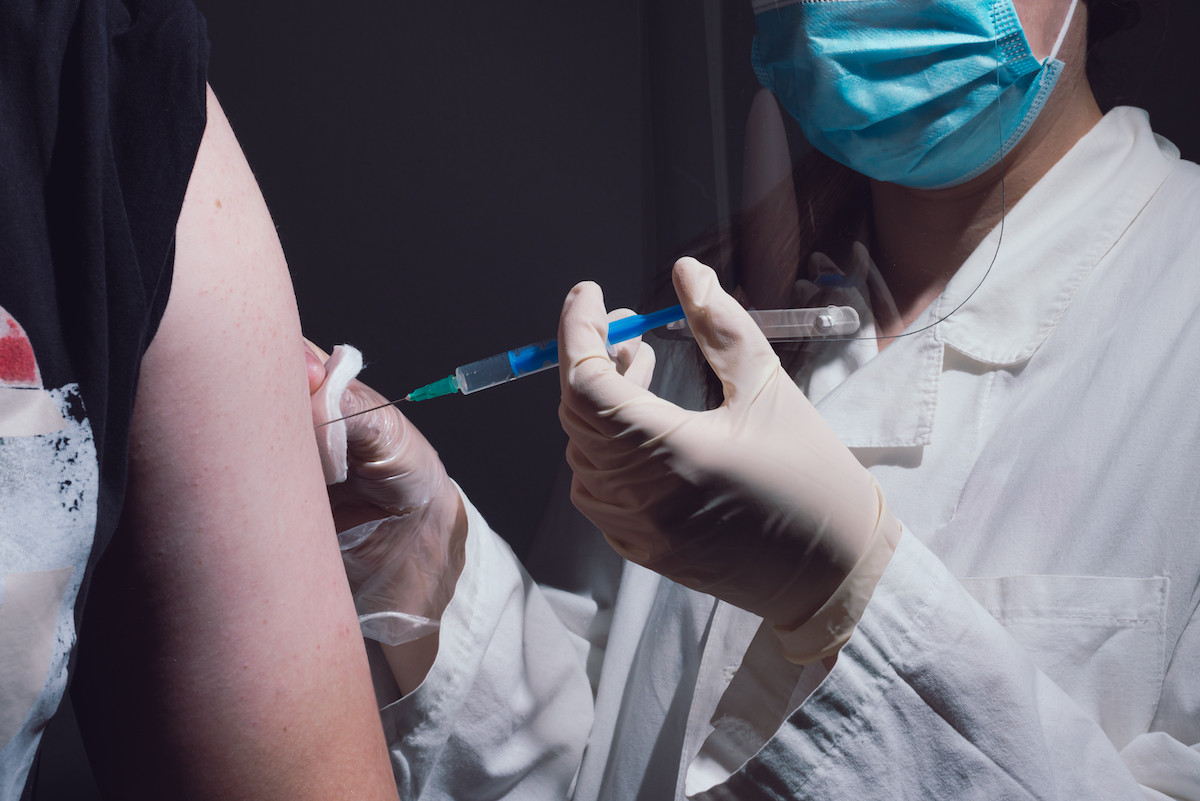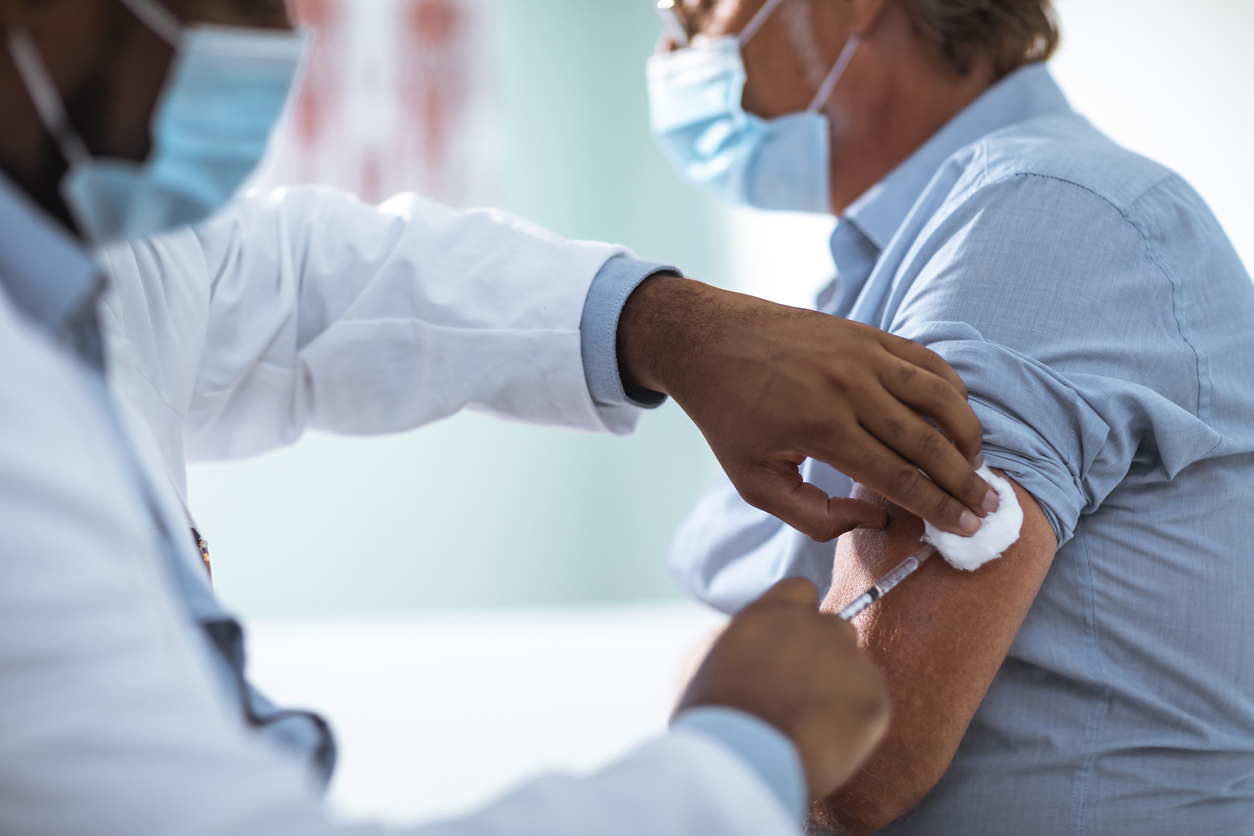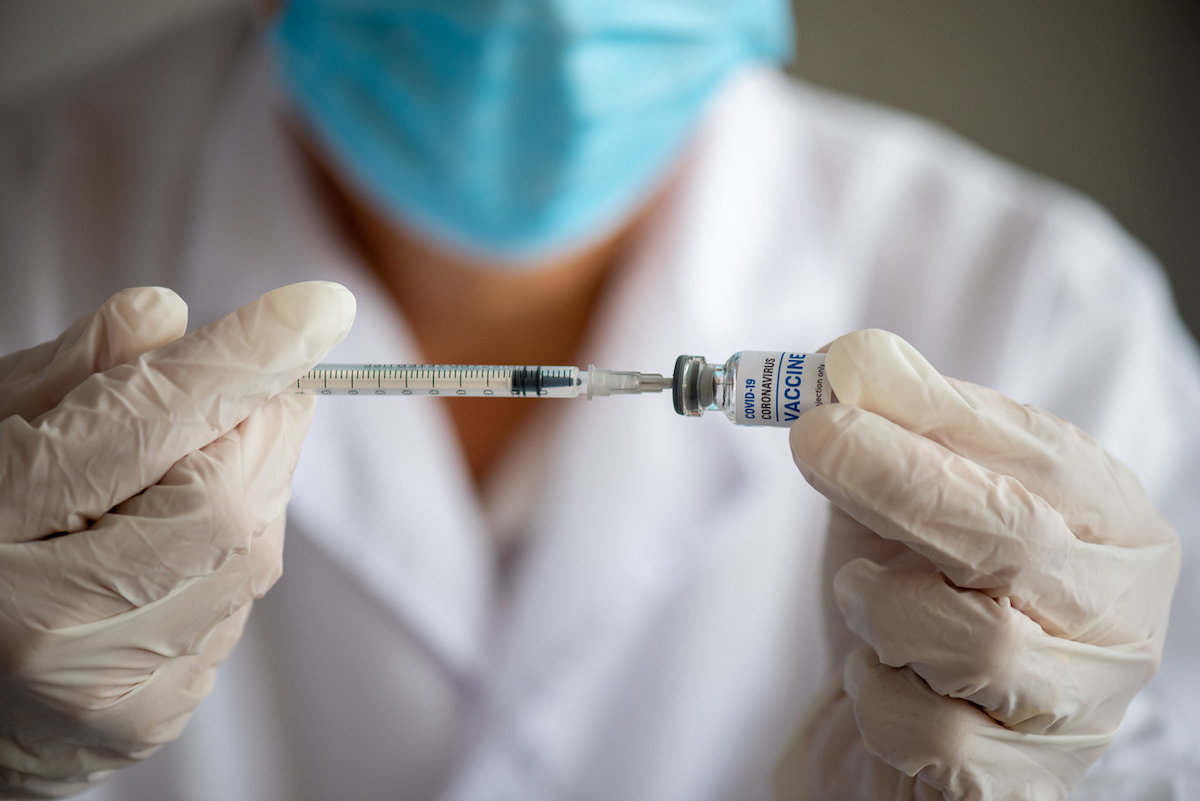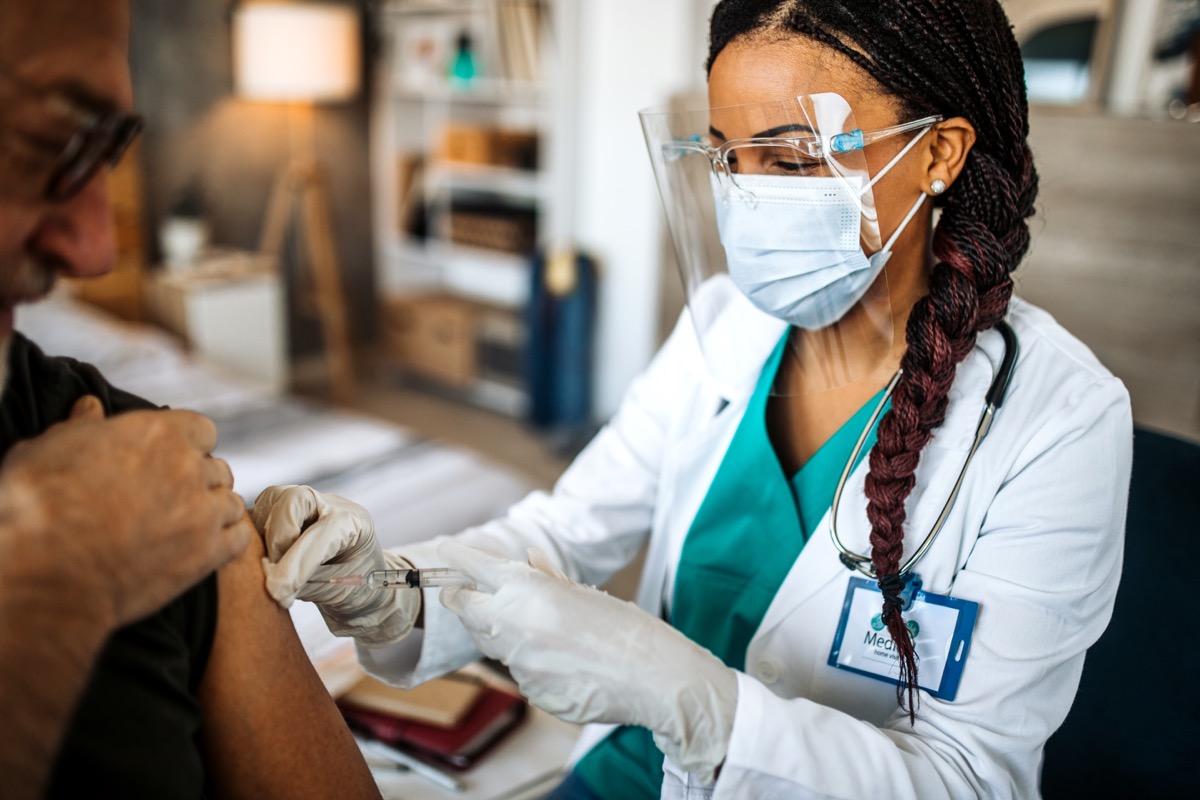Ugur Sahin, CEO and co-founder of BioNTech (which co-created the Pfizer vaccine), revealed this week that a third shot is necessary to get the “vaccine protection back up to almost 100 percent again,” according to the Associated Press. Referring to studies from Israel, Sahin noted that efficacy for the BioNTech-Pfizer jab dropped slightly from 95 percent to approximately 91 percent after six months. In order to keep people protected, Sahin suggests you’ll need a third vaccine dose between nine and 12 months after your initial shot.ae0fcc31ae342fd3a1346ebb1f342fcb Earlier this month, Pfizer also released a study on its vaccine’s efficacy after six months. The study, shared on Apr. 1, analyzed trial data from over 46,000 participants. Researchers found just 77 participants developed symptomatic cases of COVID after receiving the vaccine, while the other 850 people who took a placebo got COVID, proving it’s still highly effective half a year later. And for more on the durability of vaccines, Dr. Fauci Says Your COVID Vaccine Protects You For This Long. Speaking at a virtual CVS Health event on Apr. 15, Pfizer CEO Albert Bourla said a booster shoot will probably be needed once a year. “There will be likely a need for a third dose, somewhere between six and 12 months,” Bourla noted. “But all of that needs to be confirmed.” According to Bourla, booster shots are likely needed because the COVID virus is very similar to the flu in that it mutates frequently. And the best way to protect yourself and others against mutations is to get vaccinated. “It is extremely important to suppress the pool of people that can be susceptible to the virus because they are vaccinated with high efficacy vaccines,” Bourla explained. “The pool of people is what defines how many replications the virus will do and defines if or not and how many variants will appear.” And for more vaccine guidance, Make Sure You Get Vaccinated in This Arm, Experts Say. Beyond your third shot, Sahin told the AP, “I expect it will probably be necessary to get another booster every year or perhaps every 18 months.” Sahin also addressed concerns about vaccine efficacy against new COVID variants, saying Pfizer-BioNTech tested the vaccine against more than two dozen mutations. Without giving exact data, Sahin said the immune response “remained sufficient” against these variants, even if slightly diminished, the AP reports. He also suspects vaccinated people would be protected against the new COVID variant in India, but an investigation is still underway. “The Indian variant has mutations that we have previously investigated and against which our vaccine also works, so I am confident there, too,” Sahin said. And for more up-to-date COVID news delivered right to your inbox, sign up for our daily newsletter. Sahin also told the AP that “50-60 percent of the [U.S.] population will have received the vaccine” by the end of June, which is when he predicts certain restrictions will be rolled back. As of Apr. 28, according to data from the Centers for Disease Control and Prevention (CDC), 98 million people in the U.S. are fully vaccinated. That’s about 40 percent of the population over the age of 18. The BioNTech CEO also suggested Europe could reach herd immunity “in July, latest by August,” but because the vaccine still hasn’t been approved for those under 16 or 18 (depending on the shot), he said children would still be at risk. And for more vaccine news, This Vaccine Side Effect Could Mean You Already Had COVID, New Study Says.



